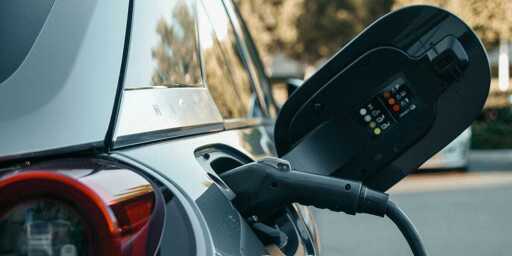I wouldn’t trust a tire pressure sensor report from Tesla, much less data on the metric people are most worried about when they buy a brand new one.
Lmao, this 10000%. Also, this article is a travesty of reporting and misleading at best. My favorite part is:
In another study across 15,000 cars — which had collectively clocked up 250 million miles — just 1.5% had needed a battery replacement for any reason, so the share that needed one due to degradation was probably even lower.
Two things are wrong with this:
- The linked source isn’t a study, it’s an article written about how great Recurrent cars are that is written by Recurrent. And it’s full of pr nonsense and mislabeled graphs, not exactly the epitome of scientific data analysis.
- 250 million miles across 15k cars is an average of less than 17k miles each. With no additional context as to the age of the cars or distribution of miles across the fleet, this number is largely meaningless. Regardless, that 1.5% figure is not as great as they want you to think.
I like EVs and believe they are the future, but this is garbage and probably written by ChatGPT — or — at least — it reads that way — and has about the same level of accuracy that I’d expect from an LLM.
250 million miles across 15k cars is an average of less than 17k miles each. With no additional context as to the age of the cars or distribution of miles across the fleet, this number is largely meaningless. Regardless, that 1.5% figure is not as great as they want you to think.
It’s 225 battery failures at avg 17K miles. As affordability goes, it’s hardly an attractive stat for the average income earner where paying off and for a car is quite a big deal.
We’ll get there, though.
But, for all we know, those 255 cars had 980k miles each and the rest had 0. Or they all had 0 miles and caught fire right off the factory line while the rest of the batteries never died.
Put more realistically, it could be that almost no cars needed a battery replacement until they hit 200k miles or 15 years old or whatever. If that were the case, it’s a pretty good number. But they didn’t provide enough data to know if that’s the case, or if all of their cars are 2 years old, lightly driven, and they’ve already had 255 failures. I could see either scenario being true.
While I agree in general, including the fact that Tesla has consistently lied about range, this article showing that the initial drop is the largest is consistent with Tesla’s lies about the real world range for newer vehicles.
The studies on other manufacturers mentioned later in the article are consistent with the Tesla data though, so that is promising.
I’m driving a 14 Tesla S (used in 2018) with 80.6% of its original battery capacity - 125k miles. I don’t think I’ll stay above 80% at 200k, but I’m happy with the performance so far. I drove a Leaf for 3 years prior to that and it was at 78% after 34k miles.
I cannot read an article with so many weasel words, and such a clearly biased stance
Many, majority, and on it goes
e: I don’t follow EV news that much, but have a casual interest in the material sciences involved in battery tech. There’s many companies feverishly working on semi solid state and solid state techologies. I remember hearing some bleeding-edge semi solid state designs are deployed to the Chinese market or will be soon. I feel like there’s going to be a lot of online chatter about how reliable the current-gen of EV batteries are, and that’s going to last exactly until the first whack of semi- or solid state hit the US market then the line will go dead on that.
? The article included source data for the generalized claims.
I have been shopping around for European EV companies to invest in. What do you guys recommend?
After shopping around recently (for cars, not companies)… Something Chinese.
I want to support European companies, but it looks like Europe is lagging behind both the US and China.
Yep, BYD appears to be where it’s at
They are not covering themselves in glory so far. I would look elsewhere.



